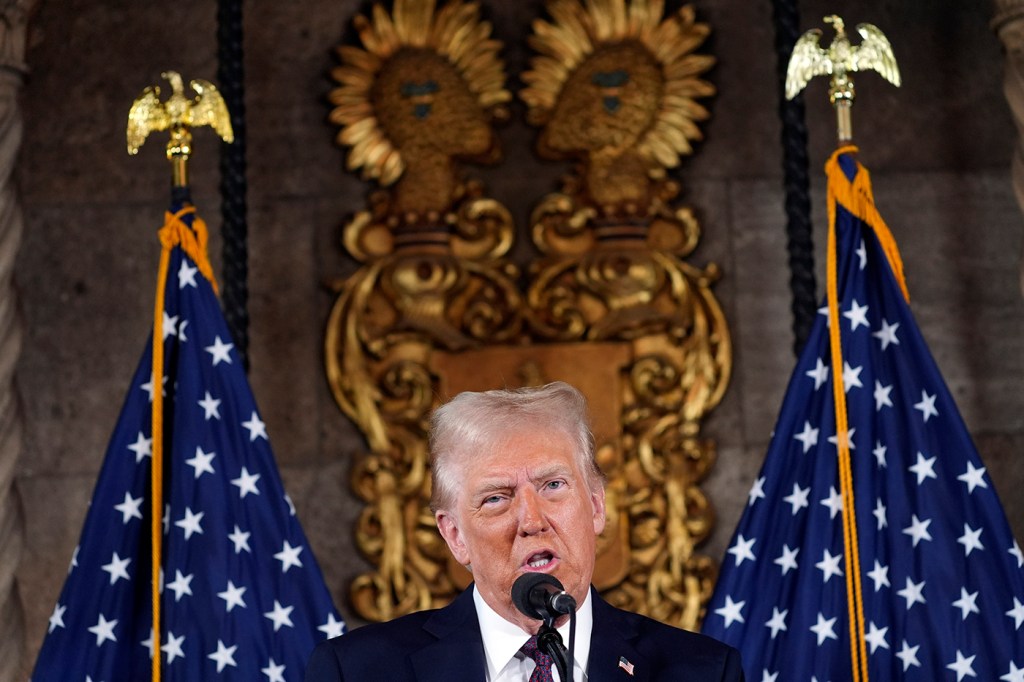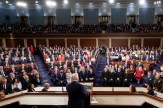Trump’s comments on Greenland, Panama and Canada are “unprecedented,” expert says. What do they mean for America’s future abroad?
Trump wants the US to assume control of Greenland, the Panama Canal and Canada. But his comments about NATO, the long-standing international military alliance, could have the biggest impact, a Northeastern expert says.

President-elect Donald Trump recently made a series of bold policy claims that could push U.S. relations with its international allies into untested waters.
During a recent press conference, Trump did not rule out the use of economic or military action to gain control of the Panama Canal and Greenland. He also doubled down on comments he made previously related to making Canada America’s 51st state, through economic sanctions if necessary.
While the actions suggested by Trump’s statements are “effectively illegal under international law,” says Julie Garey, an associate teaching professor of political science at Northeastern University, “it’s really unprecedented in the 21st century for a power like the United States to be saying it’s going to be doing these things and then pursue them in any meaningful way.”
But whether or not the Trump administration acts on any of these stated goals, the words themselves not only raise eyebrows but have a concrete impact on other nations and America’s long-standing relationships with its international allies, Garey adds.
“What is perhaps more likely is that some of this rhetoric does have an effect on the search for the new Canadian prime minister and Canadian domestic politics and how they start thinking about how their priorities should shift facing this potentially hostile relationship with one of their closest partners and allies,” Garey says.
She notes that the first Trump presidency set a precedent for disrupting previously tried and true alliances and relationships between the U.S. and other nations.

“This is a pattern of behavior that has become so concerning to the European allies that some of them are really taking note and really thinking about what they want their future to look like and how they can get there without the United States,” Garey says.
For Garey, the most notable target of Trump’s statements is not any one nation but the North Atlantic Treaty Organization, a 32-member international military alliance that spans North America and Europe. Established in 1949, NATO is essentially a collective agreement among its members to defend one another from attacks by powers outside the alliance.
Garey says NATO membership comes with clear advantages for its member nations and for global order.
“In political science and international relations, we understand, as we do with human engagement, that when states have this shared forum for discussion and debate and issue resolution, they are typically less likely to go to war with one another,” Garey says. “We can’t say that NATO has prevented war in western Europe since World War II, but we could hypothesize to a pretty certain extent that it has contributed to the fact that there hasn’t been a war between these 30 allies in 75 plus years.”
Featured Posts
While it is a military alliance, NATO also has facilitated healthy, reliable trade relations between its members, which comes with economic benefits for citizens that could be complicated if the US were to strain its NATO ties.
“NATO is a military alliance, but through NATO and organizations like the EU, the U.S. has been able to negotiate and engage in things like trade with European allies in a really beneficial way,” Garey says. “That affects people’s livelihoods, their economic situation.”
Trump’s targeting of certain NATO policies, like the amount of money member states pay into its defense fund, and allies could complicate America’s place in the alliance. In the midst of an ongoing war between Russia and Ukraine and the still active conflict in the Middle East, any break in the NATO chain of alliances –– and America’s participation is a massive link in that chain –– jeopardizes its power and the power of the U.S. to operate internationally, Garey says.
“It’s really concerning for this international system that the United States has built and was predicated on beliefs about institutions that would benefit the United States,” Garey says. “Suddenly it’s like pulling the rug out from under that system and jeopardizing that.”












